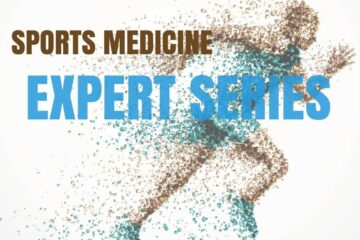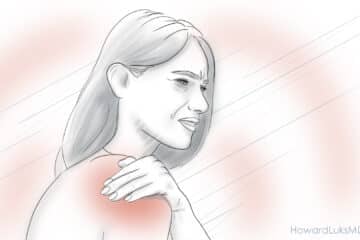
Partial rotator cuff tears are a very common finding on a routine shoulder MRI. Most of you with shoulder pain do not recall a severe injury. The majority of people with rotator cuff pain have pain in the upper arm. That pain can be particularly severe at night.
Most of you have arrived here because you had a shoulder MRI and it revealed a partial thickness or partial rotator cuff tear. Virtually no one over 40 has a “normal” shoulder MRI. Most partial rotator cuff tears are simply due to age or activity related degeneration— think of your favorite pair of blue jeans.
The treatment of partial rotator cuff tears is usually non-operative. If medications, injections and physical therapy do not resolve your pain then surgery might be suggested. Recent developments have led to the use of a patch to help repair these partial tears. See this post for more information on a regenerative patch to heal partial rotator cuff tears.
In this video we discuss partial rotator cuff tears, why they occur and what treatment might be appropriate for you. For those who prefer to read more about partial rotator cuff tears see this post.













Dr. Luks,
Thank you for this very informative video! I live about 3 hours away but I am seriously considering making an appointment with you. I am 62 years old and recently had an MRI of my shoulder and cervical spine. I have a fusion at C 4-5 so I assumed that was the source of my arm pain. The MRI showed otherwise. I have a full thickness tear of the distal aspect of the supraspinastus tendon anteriorly. There is associated supraspinastus and infraspinatus tendinosis and small probable intrasubstance tear longitudinally oriented in the infraspinatus tendon. Findings consistent with high grade partial thickness tearing of the subscapularis tendon. Associated with this there is medially subluxation or dislocated biceps tendon long head out of the bicipital groove. Moderate glenohumeral joint effusion and moderate fluid in subacromial subdeltoid bursa. Moderately large apparently septated subscapularis bursal fluid collection.
My question is do I need surgery? I had a month of physical therapy prior to the MRI. It was my physical therapist who felt the need for an MRI and after seeing the results he will not give me any further PT. Thank you for taking the time to read this lengthy email. I would appreciate any advice you can offer.
HI Sue…
Sometimes therapy isn’t effective. The biceps dislocation might be bothering you more than the other changes. Only a good examination can help determine what might be your next step.
Good luck… we would be more than happy to see you.
Howard Luks
Hi Dr. Luks,
I’m 5 months post-op revision arthroscopic rotator cuff repair. At 15 weeks post-op my surgeon saw something alarming with my External Rotation Range of Motion so had an MRI ordered. The MRI showed a complete full-thickness retear of infraspinatus 1.5 cm of retraction of the tendon from the superior humeral head. Can you use the Rotation Medical Bioinductive Implant in a re-repair or is it only good for partial tears? Is this implant similar to an augmentation patch? How successful is it using this implant and what are the longterm outcomes of using them?
Thanks,
Debbie
Hi Debbie.. The results of revision rotator cuff surgery are not very good. Sometimes an augment (rotation medical, graft jacket, etc) can improve the chance of success…but this is an unsolved issue in the world of shoulder surgery.
Hi Dr. Luks,
Thanks for your response. Do you have patients like me who have a complete full-thickness re-re-tear of infraspinatus tendon, but their subcap and supraspinatus tendons are intact but decide not to have surgery and just continue on a rotator cuff strengthening program? How do they do in the longterm? Can they continue on being physically active playing tennis and softball? Can they develop arthritis later on?
Thanks,
Debbie
Hi Dr Luks,
I am 38 and having shoulder issues for overhead activities for about 15 years now.
1. I do not feel control in any “throwing ” shoulder activity especially if overhead.. eg tennis serve, pitching, ball throwing etc… It also hurts while tennis serving. Undergone all therepies but never heals 100%
2. the exact pain is right above the bicep and MRI shown SLAP tear
BUT question is , is that the cause of pain or is it correctable by surgery?
many many thanks
tole
SLAP lesions can cause biceps pain, especially as we age. Only after a good examination could I tell you if this is the source of your pain. MRIs always find something… during the examination we determine if the MRI findings are causing your pain.